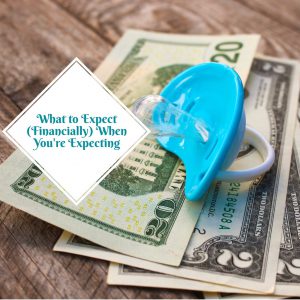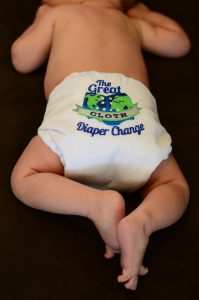So you’ve decided to expand your family! How exciting! Like any good parent you want to be as prepared as possible. You know babies start to get expensive way before you even meet them and once they’re here the spending just keeps going. So while you are picking out names, daydreaming about a nursery theme, and wondering what their future will be like, prepare yourself on what to expect financially with an expanding family.
What Is The Average Cost Of Childbirth?
Well, that depends, the cost of prenatal care and childbirth for naturally conceived pregnancies vary from state to state and birth to birth. Things like how and where you’re planning to give birth and if you have insurance significantly change the cost.
Assuming you want to deliver your baby in a hospital, the average vaginal delivery with insurance costs about $2,854 and $18,865 without insurance. C-sections are more expensive at $3,214 with insurance and a whopping $21,294 without. These estimates include care you receive during your entire pregnancy like regular check ups, sonograms and lab work.
If you prefer to skip the hospital and have a home birth you’re looking at about $4,650. Keep in mind you may have to pay for this option entirely out of pocket. Most health insurance companies are still uneasy about covering home births. Don’t be discouraged! If a homebirth is your plan there are insurance companies that will cover you. Some can even cover midwives or licensed nurses that will come to the house to assist your labor. Call your insurance company and see what options are available to you.
First Comes Labor Then Comes Baby
The first year of the baby’s life can get pretty expensive. Babies need a lot of things and it’s very easy to go a little overboard when you start looking at baby stuff. We don’t blame you, have you seen baby shoes? It’s almost impossible to say no to tiny sneakers. Let’s look at some of the things your baby will need in their first year.
- Clothing – This is arguably one of the most fun ways to spend money on a new baby. It can also be one of the hardest to plan for because babies outgrow everything pretty quickly. The average cost of baby clothes is about $50 to $90 a month putting you at $600 to $1,080 in the first year. The older they get the longer clothes last so this cost will change a lot.
- Feeding – How do you want to feed your baby? Breastfeeding is often thought of as being the “free” option but that’s not entirely true. On average a year of breastfeeding costs about $950. Aside from the new groceries you will need to help you produce lots of healthy milk you’ll need additional items like:
- Breast pumps ($30-$300)
- Milk storage bags($6-$22)
- Nipple cream($14-$30)
- Ice packs($6-$22)
- Nursing bras($18-$50)
Or you can bottle feed and spend around $1,200 a year on formula alone depending on frequency of feedings and brand. That doesn’t include the other supplies like:
- Bottles($16-$60)
- Bottle brushes($8-$10)
- Bottle warmer ($28-$85)
- Bottle sanitizer ($38-$250)

No matter what type of milk you choose, keep in mind that at 6 months old your baby will start eating baby food too. Those little jars of peas and carrots come out to around $474 for the remainder of the year.
- Diapering – Will you use cloth or disposable? Cloth diapers are technically cheaper costing around $800 to $1000 for the year compared to $2000 to $3000 for disposable. Unfortunately while the product itself is cheaper, using cloth diapers means you’ll be running your laundry more often which will raise your water and electric bill. Either way both options need baby wipes and those can cost between $120 and $547 for the first year.
- Furniture And Gear – When you’re preparing for the new baby you will have to buy a bunch of new furniture and baby gear. Spending that much money in a short amount of time can seem like a lot. Thankfully these items are usually one-time purchases and will generally last until the baby outgrows them (and some can often be reused if you plan to have more than one!).
- Crib ($120-$850) – Babies typically only need their crib for about 3 years but the crib itself can last up to 10 years before it needs to be replaced.
- Crib mattress ($60-$140) – Cribs don’t come with the mattress so you’ll have to buy this separately and you’ll want to get a new one between each baby.
- Stroller ($70-$900) – Strollers don’t expire and are essential until your child is around 4 years old.
- Diaper bag ($40-$189) – Diaper bags can typically last you about 2 years.
- Car seat ($60-$150) – Surprisingly car seats actually have an expiration date. Don’t worry, you’ve got time. It’s about 6-10 years from the manufacture date.
- Dresser ($80-$500) – If you plan this right your child can use their dresser will into their teen years.
- Baby monitor ($40-$60) – These can last you around 3 years.
- Childcare – Unless Grandma and Grandpa live close by and are available to babysit you may have to consider what type of childcare you’ll need, if any. Private nannies can cost you around $600 to $800 weekly whereas a daycare may cost you $216 a week. You’ll really need to pay attention to your budget to decide which is best for you.
A Few Budgeting Tips To Try
There is a lot to plan for when it comes to having a baby and it can seem a little overwhelming at times but there are steps you can take to help you prepare like:
- Shopping smart – Shop during sales, use coupons and cashback apps for groceries or buy items like diapers and wipes in bulk.
- Emergency cash – A new baby means you’ll have to be prepared for anything. It’s a good idea to put aside about 3 months worth of expenses just in case.
- Make a registry – Most people have a baby shower when they’re expecting, making a registry lets your friends and family know what you need so they can help save you some money.
- Ask for samples – Before you leave the hospital ask for some extra supplies they usually don’t mind sending you home with a diaper bag full of freebies. Your pediatrician can load you up with samples of products like diaper cream and baby lotions too. You just have to ask.
- Check your taxes – Look into the tax laws, if your family is eligible you may receive tax credits for childcare and a larger return depending on your income. The extra money can help with monthly expenses or maybe start a college fund for the new baby.
At the end of the day you want to know you’ll be able to expand your family comfortably without having to stress about expenses. Now that you have some idea about what to expect from the first year financially you can start to plan your budget. It’s ok to take your time and plan ahead, don’t rush, the more you prepare the better off you’ll be when the time comes to welcome that beautiful new baby.
Co-written by Brianna Hartnett

